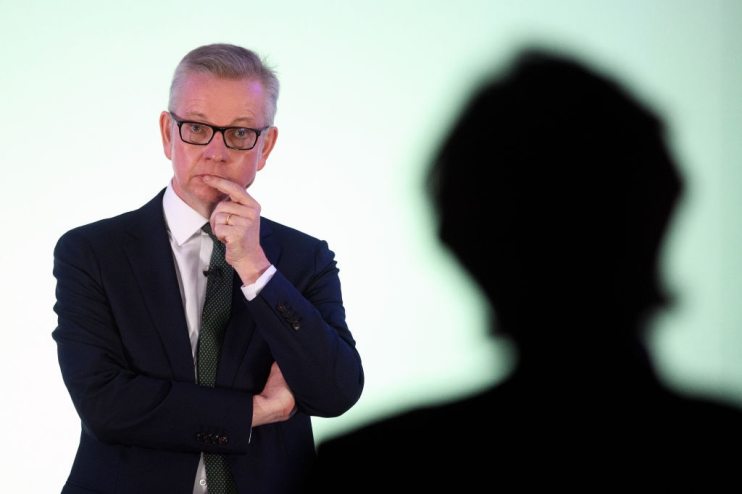Energy body urges government to greenlight more gas projects to ensure supply security

A leading energy industry body has slammed the government’s rejection of two proposed onshore projects, labelling its approach to the ensuring the country’s supply security as inconsistent.
UK Onshore Oil and Gas (UKOOG) criticised the Department for Levelling Up, Housing and Communities (DLUHC) – led by minister Michael Gove – for failing to approve INEOS’ shale exploration site in Woodsetts, and a well test put forward by IGas in Ellesmere Port.
It warned the setbacks could “undermine confidence” in onshore oil and gas development.
Charles McAllister, UKOOG’s director of policy, government and public affairs believed that Russia’s invasion of Ukraine, spiralling energy bills, and the growing emphasis on supply security meant it was vital more domestic projects could get off the ground.
He said: “If the UK really wants secure, clean and affordable British energy for the long term, as highlighted in the Energy Security Strategy, then much greater weight needs to be attached to the evident economic, environmental and geopolitical merits of onshore oil and gas production in the UK or we will continue to drift deeper into dependence on foreign sources.”
McAllister also noted it had taken two-and-a-half years for a decision to be made on either project since the inspectors reports had been published.
Both projects were snubbed after the Levelling Up Department only described their potential benefits as “moderate”, even though the sites had been approved by planning inspectors.
This comes amid the approval of UK Oil and Gas’ (UKOG) application to build two exploratory wells and drilling for a gas at its site in Loxley, Surrey.
The DLUHC put “great weight” on the benefits of the site, which was greenlit by Gove earlier this week.
UKOOG welcomed the decision, and argued the development, which is being overseen by fossil fuel specialist UK Oil and Gas (UKOG), would ensure the production of lower carbon gas for homes and businesses, as well as “offering increased energy security and domestic employment.”
Green projects stall as government backs fossil fuels
Earlier this year, the government unveiled the UK’s supply security strategy, which was chiefly focused on offshore wind, solar and nuclear power alongside North Sea oil and gas exploration.
These energy sources have benefitted from ambitious generation targets to encourage investment, such as boosting offshore wind from 10 to 50 GW by the end of the decade, and solar power from 14 GW to 70 GW by 2035.
By contrast, onshore gas production and wind turbines did not receive generation targets, and remain vulnerable to local objections from authorities and communities.
Joe Tetlow, senior political adviser at environmental think tank Green Alliance, told City A.M. it was unfair that the Loxley gas development had been pushed through while onshore renewable projects remain trapped by planning legislation and local authorities.
He said: “Local communities have opposed drilling in Surrey, just as people have opposed fracking across the country for years. The government should be getting on with unblocking planning for popular clean energy like onshore wind, which actually has huge popular support.”
Backlash begins after government overrules Surrey authorities
Local opposition has already mobilised following approval of the Loxley development, with Waverley Borough Council describing the verdict as “the worst possible outcome”, warning the drilling could cause “irreversible harm” to the environment.
The planning application had also been opposed by campaigners and the Conservative MP for South West Surrey, Jeremy Hunt – a former senior cabinet minister.
He has written a letter to Gove urging him to reverse the decision, warning it “will create enormous disruption and environmental damage for little if any economic benefit”.
The Liberal Democrats, which are looking to poach seats in the South from the Tories, have criticised the decision on environmental and democratic grounds – hoping to generate momentum ahead of the local elections from disgruntled voters.
Party leader Ed Davey described the decision as “shameful” and accused the government of ignoring the concerns of communities.
The Tory-run Surrey County Council had twice refused permission to build two exploratory wells at Loxley, but the DLUHC overruled the authority following an appeal by UKOG.
UKOG revealed it was looking forward to working with the local community, and its chief executive Steve Sanderson has written a critical letter to Hunt – which the company has shared online.
He argued natural gas is key to ensuring the UK’s future energy supply and reducing the country’s reliance on foreign imports, and would also have a key role in blue hydrogen production.
The energy boss revealed that UKOG has earmarked 43-70bn cubic feet of recoverable gas at the Loxley site as a predominantly blue hydrogen source, capable of delivering an 85 per cent reduction in carbon emissions if allied to carbon capture.
Sanderson concluded: “I stand firmly behind my assertion that the Loxley development and any others of its kind make perfect strategic, economic and environmental sense for Surrey and the UK.”
City A.M. understands the project could take up to two years to begin producing energy.
The project’s approval follows the government giving the the go-ahead to the Jackdaw project, a large new North Sea gas field which Shell will develop – highlighting its growing focus on ramping up energy generation.